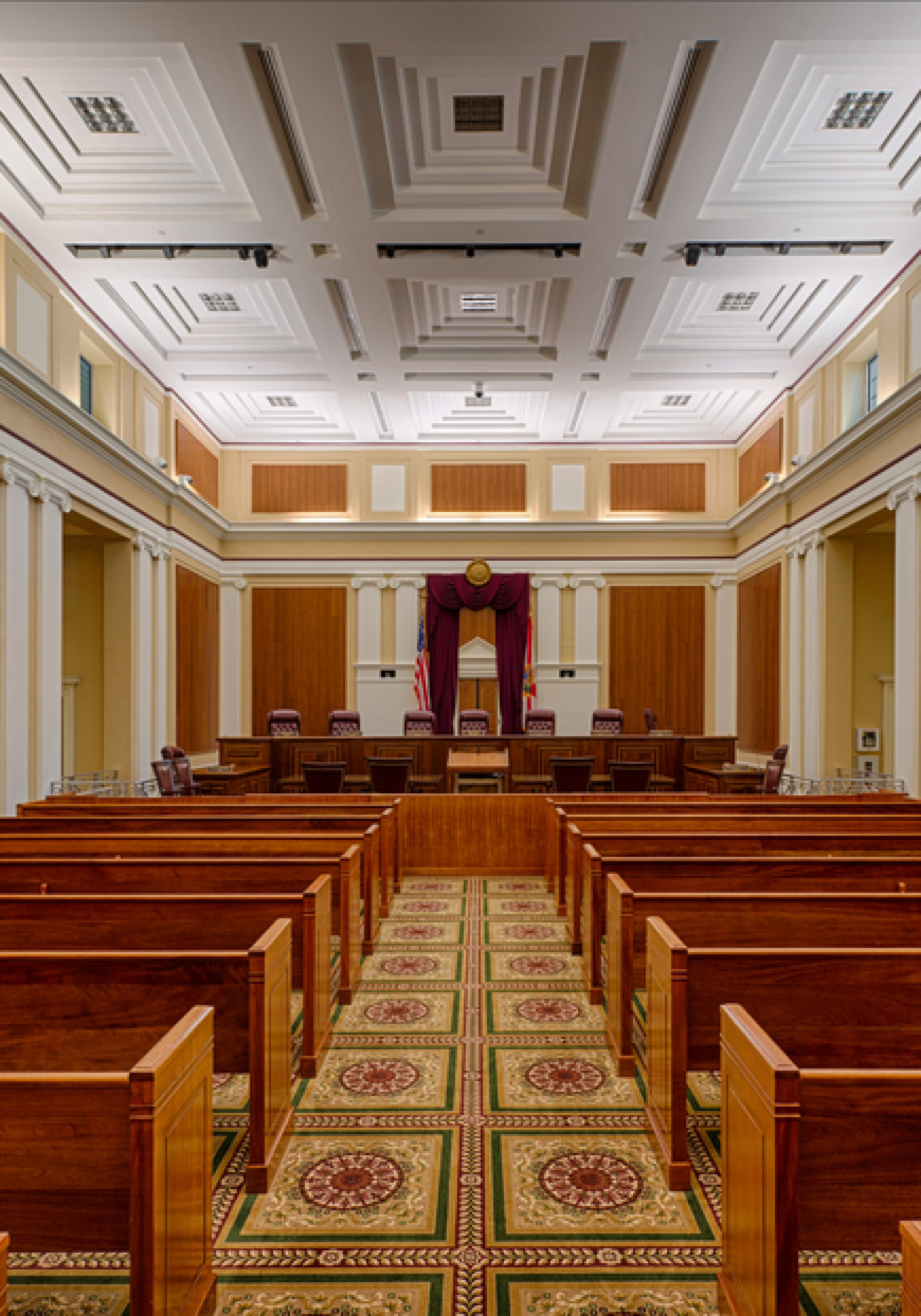
Florida’s Supreme Court heard arguments Tuesday on whether the legislature’s changes to the state death penalty law can be applied to pending cases.
Florida’s 5th District Court of Appeal has asked justices whether the new law can be applied in the case of Larry Darnell Perry, who is accused of killing his 3-month-old son in 2013. Perry, of St. Cloud, Florida, is scheduled to stand trial beginning Aug. 23.
It is one of a number of cases the state’s highest court is considering since the U.S. Supreme Court ruled the old system unconstitutional because it gave too much power to judges instead of juries.
The new sentencing scheme, which was passed by the legislature and signed by Gov. Rick Scott in March, requires 10 jurors to recommend death. Previously, only a simple majority of seven was required. Also, a judge can’t impose a death sentence when the jury recommends life.
The Florida Supreme Court has already stayed two executions and is considering whether Timothy Lee Hurst‘s death sentence on a murder conviction should be reduced to life. If Hurst’s sentence is reduced, it could affect some or all of the state’s 389 inmates on death row.
“There’s no beginning point. What do you start with first?” said Martin McClain, who was one of Perry’s attorneys, about the many death penalty cases before the court. “This is first time since 1973 the death penalty statute has been rewritten, and whenever you rewrite something major you have a period of adjustment.”
McClain also noted that the law has some ambiguity, with the key point being that the jury doesn’t have to be unanimous. Florida remains one of three states where less than a unanimous jury can sentence someone to death.
The lack of unanimity was the subject of many of the justices’ questions Tuesday.
Chief Justice Jorge Labarga asked McClain the history of Florida requiring a unanimous verdict. McClain pointed out that it has always required a unanimous verdict for criminal convictions but not for capital punishment.
Assistant Attorney General Carol Dittmar said during arguments that Florida is an outlier because “we go above and beyond” and the statute offers a lot more protection to capital defendants because it goes to a judge instead of a jury.
At least one judge disagrees. Last month, Miami-Dade Circuit Judge Milton Hirsch said the new law should require unanimity.
The Florida Supreme Court will issue opinions until July 7, before it takes summer recess until late August.
“Clearly at this stage in our jurisprudence, we want to make sure that the statute is construed in a constitutional manner so that we don’t have another 15 years of death penalty if the state wants the death penalty – which apparently it does – in flux,” Justice Barbara Pariente said during arguments
Republished with permission of the Associated Press.



